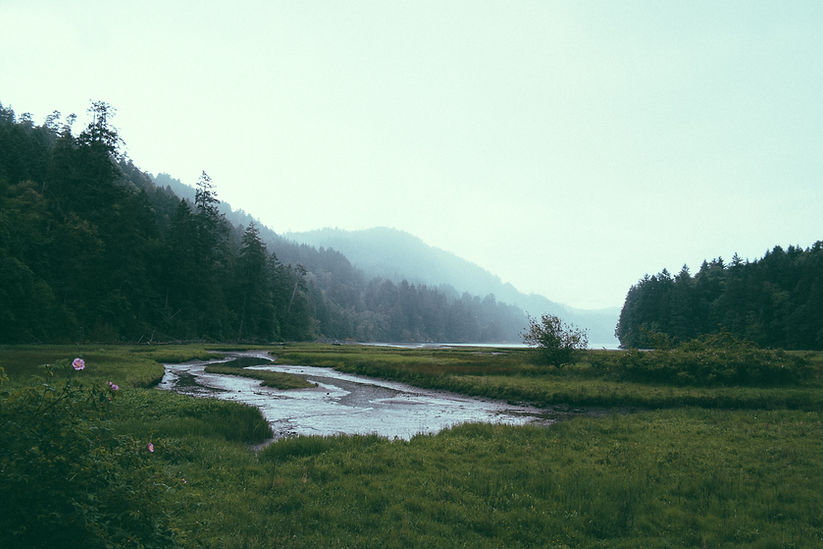
About the Watershed Futures Initiative
Watershed Futures Initiative is a collaborative initiative that undertakes and coordinates research on cumulative effects in British Columbia’s salmon-bearing watersheds, and initiates dialogue among researchers, practitioners, and policy-makers. An Advisory Panel of experts provides technical and strategic advice, while the Coordination Team provides leadership and logistical support for the Initiative.
Simon Fraser University and the University of British Columbia respectfully acknowledge the xʷməθkʷəy̓əm (Musqueam), Sḵwx̱wú7mesh Úxwumixw (Squamish), səlilwətaɬ (Tsleil-Waututh), q̓íc̓əy̓ (Katzie), kʷikʷəƛ̓əm (Kwikwetlem), Qayqayt, Kwantlen, Semiahmoo and Tsawwassen peoples on whose unceded traditional territories our campuses reside.
The Watershed Futures Initiative's goals are:
COMMUNITY CONNECTION
SCIENCE & UNDERSTANDING
To connect the disparate community of people working on cumulative effects and elevate diverse initiatives.
To fill existing gaps in understanding through synthesis and research on cumulative effects.
INFORMING MANAGEMENT
To link research with decision-making towards improved, proactive management of cumulative effects.
Coordination Team

JONATHAN MOORE
Project Lead, Watershed Futures Initiative; Professor, Simon Fraser University
Jon leads the Salmon Watersheds Lab, who research the ecology and conservation of watersheds, with a particular focus on the intersection of rivers, salmon, and people.

NIGEL SAINSBURY
Project Director, Watershed Futures Initiative; Postdoctoral Researcher, Simon Fraser University
Nigel is a social scientist in the Salmon Watersheds Lab focusing on expert perceptions of pathways of effects to help inform cumulative effects management in BC's salmon-bearing watersheds.

TARA MARTIN
Project Co-Lead, Watershed Futures Initiative; Professor, University of British Columbia
Tara leads the Conservation Decisions Lab, pioneering the field of conservation decision science to bridge the gap between science and conservation action.

TRISHA HALL
Project Coordinator, Watershed Futures Initiative; Simon Fraser University
Trish is a salmon conservationist with a background in project management, administration, oceanography and environmental science.
Past Coordination Team Members:
EMMA GRIGGS, Simon Fraser University
JULIAN GRIGGS, Principal, Dovetail Consulting Group
SARA CANNON, Simon Fraser University

Advisory Panel

SARA CANNON
Postdoctoral Fellow, Centre for Indigenous Fisheries, UBC
Sara is a postdoctoral researcher at the Centre for Indigenous Fisheries (UBC), where she conducts interdisciplinary research with and for Indigenous communities to support their stewardship of wild Pacific salmon.

BOB CHAMBERLIN
Chairman, First Nation Wild Salmon Alliance
Bob is a leader in wild salmon conservation, working to improve salmon stewardship, reconciliation, and Indigenous rights.

JULIAN GRIGGS
Principal, Dovetail Consulting Group
Julian is an independent consultant specializing in the design and facilitation of multi-party collaboration, particularly related to land and resource management, Indigenous rights, and climate.

CAYTLYN MCFADDEN
Stewardship & Conservation Department Head, Lower Fraser Fisheries Alliance
Caytlyn is the Stewardship & Conservation Department Head at LFFA and has extensive experience designing and delivering stewardship, restoration, and nature-based climate change adaptation projects, specifically focused on fish and fish habitat.

ANDREA REID
Assistant Professor & PI, Centre for Indigenous Fisheries, UBC
Andrea Reid is an Indigenous fisheries scientist and citizen of the Nisga’a Nation who employs community-based approaches and Indigenous research methodologies in her study of culturally significant fish and fisheries.

DEBORAH CARLSON
Staff Lawyer, West Coast Environmental Law
Deborah is a staff lawyer at West Coast Environmental Law, working to understand how healthy relationships with nature and each other can be reflected, and protected, in law.

CATHRYN CLARKE MURRAY
Research Scientist, Fisheries And Oceans Canada
Cathryn is a Research Scientist with DFO. She brings extensive expertise on the science and management of multiple human activities in aquatic ecosystems.

KEVIN KRIESE
Past Chair, BC Forest Practices Board
Kevin is the past Chair of the Forest Practices Board. He has worked in BC for thirty years in land use, policy, and reconciliation.

MURRAY NED
Executive Director, Lower Fraser Fisheries Alliance
Murray is a member of Sumas First Nation located in the Fraser Valley and is the Executive Director of the Lower Fraser Fisheries Alliance. He is a long-time leader in fisheries governance, regional restoration, and Indigenous stewardship.
Past Advisory Panel Members:
EMMA HODGSON, Research Scientist, Fisheries and Oceans Canada
TARA MARTIN, Professor, University of British Columbia


Funding Sources
The Watershed Futures Initiative is primarily funded by the British Columbia Salmon and Restoration Innovation Fund.
Additional funding and in-kind support comes from the the Sitka Foundation, Liber Ero, Simon Fraser University, and the University of British Columbia.